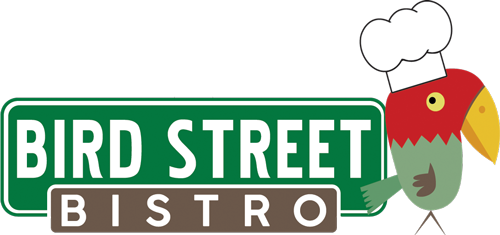Macaw Food You Can Trust
Beautiful, vivacious, the macaw is loved as a companion around the world. Vibrant color patterns and stunning markings make each macaw seem like a one-of-a-kind painting. In fact, the feather patterns of macaws are as unique as human finger prints! Macaws are characterized by their long tails and large beaks which are used to forage through food.
Did you know that some macaws actually have cheeks that blush to indicate mood? This is just one of many fun pieces of trivia to know about beautiful, exotic macaws.

What should I know about what my macaw food my bird eats?
Tending to the dietary needs of your bird is one of the biggest responsibilities you’ll have as a macaw owner. The truth is that what you feed your macaw will impact your bird’s health and happiness for decades down the road.
Creating the right diet can keep your bird feeling and looking its best. In addition, being proactive about your macaw’s diet can potentially help you to avoid vet bills down the road. Keep reading to learn what you need to know about pet bird food.

What exactly does my macaw naturally eat?
You might be wondering what the macaw diet looks like in the wild. A wild macaw will typically eat foods like seeds, nuts, berries and fruits in its natural habitat where it is free and perhaps get more exercise than our feathered friends. The key thing to know is that a wild macaw’s diet will depend entirely on what is available. That means that a wild macaw’s diet is varied and fresh.
What about an all-pellet diet?
There was a time just a few years ago when the all-pellet diet was the recommended diet for macaws and other parrots. The bird community has since moved on from this trend. The fact of the matter is that a pellet diet will not provide the variety that macaws need. A pellet diet is a far cry from a diet that relies on what is naturally available in the robust, lush forests of Central America and South America. Another issue with the pellet diet is that it prevents macaws from displaying their innate foraging instincts. An all-pellet diet almost always leads to boredom. This boredom can cause your macaw to exhibit behavioral issues and feather plucking.
An all-pellet diet also poses some very specific long-term health risks for macaws, because toxicity is a big problem when it comes to pellet diets. In addition, the lack of enzymes in synthetic pellets can create some serious issues when it comes to the liver, kidneys and stomach. A bird on an all-pellet diet is a bird that’s out of balance. Bird Street Bistro’s blends are designed to bring birds back into balance. They replicate what a tropical bird would eat in nature using a carefully selected mix of good-for-you ingredients.

So why have pellets been recommended so often?
“Many avian veterinarians believe that parrot owners should be encouraged to feed a 100% manufactured diet to their birds because the majority of owners are not capable of providing a good diet otherwise. I never fail to feed saddened when I encounter this ideology, for it essentially removes the benefit and privilege of choice from the parrot owner. In other words, the owner is encouraged to feed a pelleted diet, not because of strong conviction that the diet is optimal, but because it is perceived as the lesser of two evils.”
Pamela Clark, CPBC. CVT.
This view comes from manufacturers with a somewhat understandable view of the average consumer and of our chaotic schedules. Nearly 60% of domestic bird autopsies show malnutrition signs and only 12%, yes only 12 percent, of bird owners take their birds to the vet. Whether macaw pellet food contributes to this, we cannot speculate. Macaw pellet food is an easy fix for many people because it can keep some parts of nutrition going, but not fully.
What do I feed my Macaw?
Someone who owns an macaw should definitely feed the full spectrum of carbohydrates, proteins, fats, spices, and other nutrients like vitamins and minerals.
Balance is the key when it comes to designing a healthy macaw diet. One unique thing that is known about macaws is that they actually require foods with slightly higher fat levels than other birds. However, that fact shouldn’t give your macaw a license to eat high-fat foods with reckless abandon.
What has been learned about our dear macaw dates back to science and research that is still comparatively young. Out of ignorance parrots were first fed an all seed diet and thought that as optimal. After the harm from an all seed diet became apparent, we over compensated by introducing super charged pellets. Now the results of a pellet only diet are starting to come to light.
The best approach is to step back and think, “what would we do with our own diets, based on the amount or exercise we get and what we naturally eat thanks to mother nature”. Taking a holistic approach for our parrots’ diet is better suited to provide our avian friends with the best life possible. It may be a daunting task at first, but that’s why Bird Street Bistro takes a different approach to parrot food. Bird Street Bistro goes back to the basics, going back to what mother nature has provided us. Pure and All-natural parrot food.
Always remember to consult your avian veterinarian to determine your bird’s individual dietary needs.
- Choosing a selection results in a full page refresh.
- Press the space key then arrow keys to make a selection.

